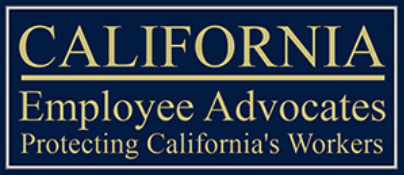There are many laws in place in California to protect the rights of employees. One of them being wrongful termination. If you believe you are a victim of wrongful termination, there is help.
You may have heard, or seen in your contract, that you are an at-will employee. Meaning, you can leave your job at any time without explanation, and your employer may fire you at any time without cause or reason. Even though your employer doesn’t need a good reason to fire you, they are still prohibited by law from terminating you for an unlawful reason.
Wrongful termination and other potential workplace-related claims can come in many forms, but let’s look at some of the most common ones. If any of this sounds familiar to you, you may be owed compensation by your employer.
What is wrongful termination?
Discrimination
Unfortunately, a common cause of wrongful termination is discrimination. Discrimination is when an employer subjects a particular group of people to unfair treatment based on factors. Common factors of discrimination include:
- Race
- Color
- Religion
- Sex (including pregnancy, gender identity, and sexual orientation)
- National origin
- Disability
- Age
- Genetic information
- Military or veteran status
The Fair Employment and Housing Act protects these rights. If you feel that your employer has personally targeted you, they may owe you compensation.
Wrongful termination for retaliation
Employees in California are protected from unlawful retaliation by their employers. Unlawful retaliation is when an employer enacts a form of revenge upon their employee. Employees have a right to report their employer’s illegal actions. Illegal actions may include:
- Harassment
- Unfair wages
- Denying reasonable accommodations
- Filing a workers’ compensation claim
- Any other unlawful act the employee witnessed or subjected to
Since most employers know they cannot retaliate against these claims, they may unjustly terminate the employee without cause.
Wrongful termination for Protected Time Off
An employer may not fire a worker for taking protected time off. There are 14 types of protected time off in California, including:
- Sick leave
- Maternity leave
- Child bonding leave
- Serious health condition leave
- Lactation breaks
- Time off to vote
- Time off for military duty
- Time off for parental duty
The duration of the protected time off may depend on the company’s size, and the employee may be required to give notice for certain types of protected leave. For example, suppose an individual has complications during pregnancy or childbirth. In that case, an employer must allow up to four months of unpaid time off on top of maternity leave. If you have been denied protected leave or fired while taking it, then you may be owed compensation by your employer.
Overtime Violation
According to California law, overtime compensation begins when an employee works more than 8 hours in a workday or more than 40 hours in a workweek. Furthermore, it is illegal to require an employee to work off the clock or during an unpaid break. This payment is entitled to by your employer. If they have failed to compensate you for overtime, then they have committed an overtime violation. The state of California could entitle you to back pay and repayment of overtime wages owed.
Constructive Discharge
Many people think that if they have quit their job, they cannot receive financial compensation from a wrongful termination claim. Constructive discharge happens when an employer may be trying to avoid an unlawful termination charge by conducting themselves in a way that would make any reasonable worker quit.
Wrongfully not rehired
A furlough is when an employer suspends an employee’s payment and workload for a finite amount of time, intending to bring them back on. While furloughed, a person is still an employee of the company but not allowed to work. If an employer used furlough as an excuse to terminate a worker or wrongfully not rehire, this is also unlawful.
Within each case of wrongful termination, there are nuances. If you feel you have been a target of discrimination, unlawfully retaliation, fired for taking protected time off, a victim of overtime violation, victim of constructive discharge, or wrongfully not rehired after furlough, then it is crucial to hold your employer accountable.
*Disclaimer: This article post is not meant to substitute for legal aid or give legal advice. If you or someone you know requires legal aid, please reach out to a qualified attorney. California Employee Advocates is not a law firm.


Trackbacks/Pingbacks